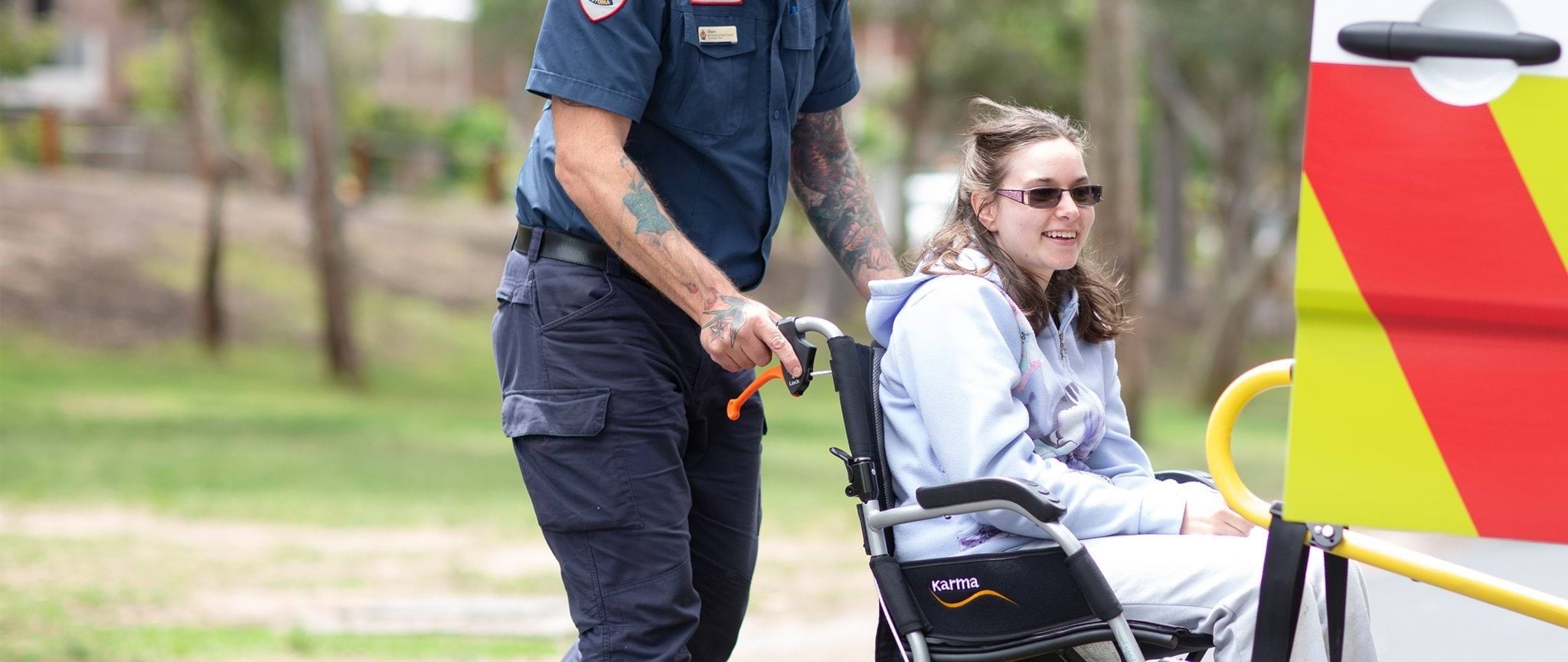NEPT will only be considered by AV Membership in cases where:
- It is clinically necessary*, and
- the transport is to the nearest most appropriate medical facility, and
- it is pre-approved by AV, and
- transport has been authorised and booked in the correct manner by a qualified health/medical professional who has made an informed decision about whether:
- there is a genuine clinical need for a patient to be transported and
- the patient needs to be transported by ambulance instead of another way and
- the patient requires active clinical monitoring or supervision during transport.
The health/medical professionals who can usually authorise ambulance transport are:
- a registered medical practitioner
- an Ambulance Victoria paramedic/authorised employee of the Triple Zero Victoria
- a registered division 1 nurse (under the Non-Emergency Patient Transport Regulations 2016)
*clinically necessary means that the patient requires active clinical monitoring/care or clinical supervision during transport that is provided by a paramedic, health professional or qualified patient transport officer or attendant.
Please note
- Any booking queries should be directed to PTBookings@ambulance.vic.gov.au(opens in a new window)
- NEPT staff do not provide information on billing/membership coverage and only take bookings from registered medical practitioners.
- All pre-booked Non-Emergency Patient Transport requests must be made using the online booking form and comply with the existing Non-Emergency Patient Transport Regulations.
- Transport coverage is always subject to the Membership Scheme Business Rules and the Ambulance Service Payment Guidelines. AV Membership only covers you if a third party is not responsible for payment (e.g. the sending public hospital).
- Members cannot book their own transport; this must be booked by a qualified health/medical professional.
- Bookings that are ineligible will be advised at the time of booking and provided with information about alternative transport options. These include family and friends, taxis and rideshare services, public transport, or community transport services such as Red Cross community transport service. A list of options will be published to the DH website.
- If membership does not cover non-emergency transport, the treating health/medical professional may still be able to authorise and book the transport at the patient’s own expense, provided AV has the available resources.
Find out more about non-emergency patient transport.
Patients meeting the above criteria are likely to:
- Require the use of specialised medical equipment contained within the vehicle, or
- Require the clinical skill levels and qualifications of the staff in the vehicle, or
- Have an illness or a disability that makes it impractical to use any other form of transport, for example, severe immobility or disorientation. An inability to walk does not meet the criteria within the regulations.
